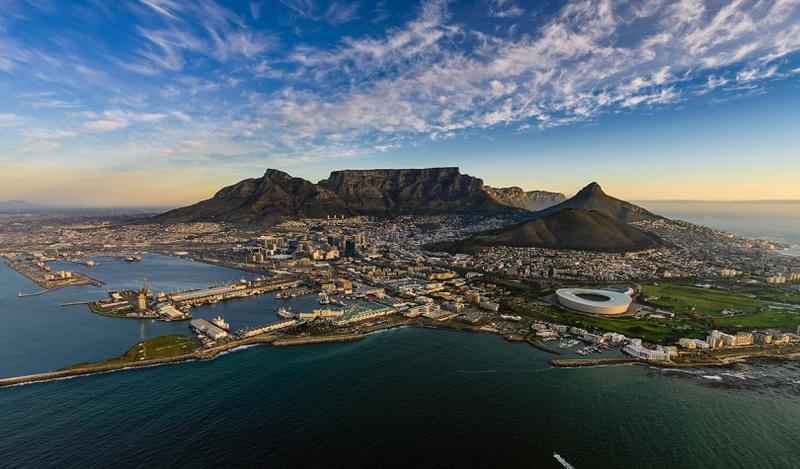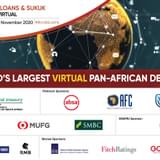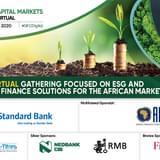In June, an investigation carried out by attorney Geoff Budlender, found that Trillian, a company linked to the Gupta family, business associates of president Jacob Zuma, had been paid ZAR495mn (US$39mn) by state-owned utility firm Eskom, despite not having carried out any work.
The ties of the Gupta family, a wealthy family of Indian origins, to Zuma are well known in South Africa – both his wife and son worked for them- and the influence the three brothers have in South African politics has long been questioned not only by the media, but by political opponents of the current president.
Many companies with links to the Guptas- who have interest in media, telecoms and mining, among others - have been awarded lucrative contracts by government-run enterprises, and they have been known to be “unofficial advisers” to Zuma and other members of his cabinet.
Eskom is just one of the long list of opaque deals surrounding Zuma and the Guptas, and even though any allegations of wrongdoing have been vehemently denied by both parties, this time it might not be enough to calm the storm brewing on South Africa’s political scene.
While the company’s CFO Anoj Singh was placed on a special leave after the news broke that he had taken trips to Dubai on the Guptas’ tab, the real surprise came from South Africa’s Finance Minister Malusi Gigaba, a close ally of Zuma. In a declaration to the local media, Gigaba expressed his concerns about the ongoing investigations.
“The issues being raised in the audit findings are serious and very grave. They are grave for the government. They are grave for how the investor community‚ especially the lenders, ratings agencies and the public view the governance of our state-owned entities,” the minister told a Cape Town based radio station.
Other members of ruling party ANC have called for Zuma’s immediate resignation and for public enquiry to be conducted on the payments.
And the South African leader ought to be concerned: the repercussion of this case might extend beyond the realm of politics and make its way down to South Africa’s economy if it is not dealt with in an adequate manner; foreign investors increasingly raise doubts about the government’s ability to clean its own backyard.
According to Arno Lawrenz, Head of Fixed Income Portfolio Management at Ashburton Investments, the story around the Gupta family and perceived corrupt activities involving high-profile government officials is the “key political issue of the day in South Africa”, especially in the run-up to December 2017, which is when the ruling ANC elects a new party leader.
“This story will play a significant part in the way in which political power is exercised in South Africa. As such, for investors, this is a very significant development, bringing questions about future economic policy to the fore. So, for a capital holder looking to invest in South African corporates, uncertainty around tax policy will certainly play a major role in their analysis. In the mining industry, also currently subject to questions around the Gupta family, there is enormous uncertainty around future policy, causing investors to take an extremely dim view of such corporates,” he commented.
Lawrenz believes that the idea that economic policy is being influenced with malign intent can only have one possible outcome, which is for investors to be reluctant to commit to the country long-term.
“With a substantial current account deficit that is funded by foreign investor inflows, if South Africa wants to avoid a currency slide, it will have to be careful in how it positions itself to foreign investors. In order to attract long-term capital, rather than just portfolio flows, there needs to be a higher degree of certainty around macroeconomic policy. The risk is that with all the attention given to the political shenanigans, economic policy (and hence growth) stagnates,” he added.
For Abri Du Plessis Portfolio Manager, Economist & CEO Gryphon Asset Management, this case will receive even more attention due to the fact that Eskom was one the most highly regarded public companies. “Credit rating agencies warned since last year that they are concerned about the wellbeing of SOE’s (State Owned Enterprises) in SA. Eskom was one of the only few that remained fairly well managed; this is now not the case anymore,” the investor explained.
More Regulation Is Not Always the Answer
Unlike many other countries in the emerging world, South Africa does not necessarily require more regulations to fix its corruption problem, a point both investors agree on.
For Du Plessis, what the country needs is just a “change of guard”, not additional laws or regulations. While Lawrenz explains that in the corporate context, South Africa already operates at a very high level of transparency: for example, it is rated the first in the world when it comes to the strength of auditing and reporting standards, as well as the protection of minority shareholders’ interests. And it is third in the worldwide rating of efficacy of corporate boards.
But when it comes to public policies, investors are getting anxious about what they see.
“When an investor makes a decision about investing into SA corporates, there is a high degree of confidence that can be attached to the available financial information. However, it is the operating environment (namely, future macroeconomic policy direction) that is increasingly uncertain,” the investor added.
As Brazil’s case proves, corruption scandals in emerging markets can become an economic and financial impediment very quickly, and it might take years for a sovereign to recover the market’s trust.
For the time being however, global investors might be willing to overlook South Africa’s corruption scandal, as the lack of growth and low rates in the developed world puts a dent in their portfolios.
“The significance of the corruption scandal is, to a certain degree, being overlooked in favour of the global search for growth and yield. Should global growth rates recover, or, should other emerging markets, on a relative basis, be better positioned than South Africa, then it is highly probable that the country would struggle to attract foreign investors.”
“In addition to this, international rating agencies have already over the past few years been downgrading South Africa’s sovereign credit ratings on the back of the lack of growth, the uncertainty around future economic policy, and the perceived increase in corruption. This dynamic itself potentially causes investors to hesitate when it comes to investing here, and could cause a downward spiral in foreign investment in SA,” Lawrenz concluded.
In a year when South Africa lost its investment grade, the government must focus on cleaning the house and showing foreign investors that the country is open for business – and, most importantly, for legitimate business.









